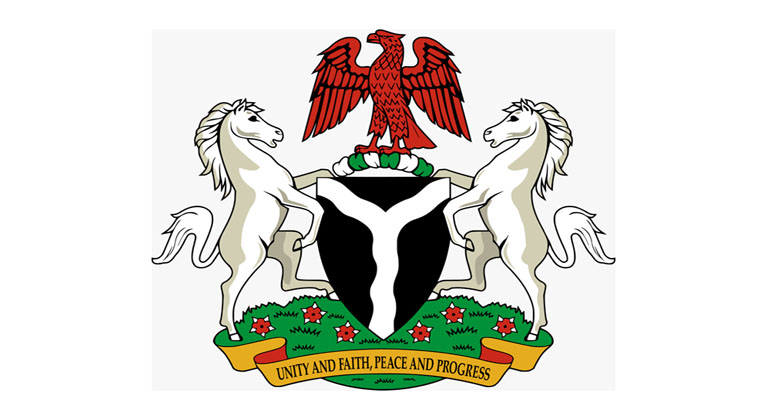
Admittedly, the new PSR has some innovative provisions that will propel the service to greater heights,however, we noted that it also reintroduced the eight-year tenure rule for Directors and Permanent Secretaries. The problem is not with the tenure Rule per se, but with the manner of its implementation by the Head of Service (HoS). She is applying it across the entire public service to include even parastatals that have their establishment and governing laws. Furthermore, she is giving it retrospective effect thereby attaching unconstitutionality to its implementation.
For the benefit of the discerning public, the public service comprises staff of the core Ministries i.e., civil service on the one hand, and the staff of parastatals, on the other hand i.e., the employees of government organisations that were established by Acts of Parliament with their governing laws. For these organisations e.g., Universities, tertiary Hospitals, Research institutes, regulatory bodies etc., their respective laws stipulate the grounds upon which an employee can be disengaged and the strict procedures that must be followed. The courts have repeatedly stated that the authorities must comply strictly with the procedures and provisions of those laws in terminating the employment of the employees. This is why their employment is referred to in law as “employment with statutory flavour.” These laws also demand that the concerned employee must be given fair hearing before he can be disengaged. Tenure rule as a ground for compulsory retirement is not within the contemplation of any of those laws. Can the PSR then supersede and override an Act of Parliament? In the case of parastatals with establishment laws, where the PSR conflicts with the law, the law prevails. PSR is not their primary law. Therefore, we think that the government should exclude institutions with their own establishment and governing laws from the application of the tenure rule otherwise they will be creating bad precedence, attracting avoidable litigations and huge expenses.
This was the issue in the case of Comptroller General of Customs and Others v. Comptroller Abdullahi B. Gusauwhere thirty-two Comptrollers of Customs were compulsorily retired based on a new 2009 policy document that compulsorily retired Comptrollers of Custom who have served 10 years on the post. The Court of Appeal, and the Supreme Court in 2017, had no difficulty nullifying the policy, and their compulsory retirement was declared contrary to the governing law.
Noteworthy that even when the Governing Councils or Management Boards of these parastatals are eventually constituted, they must follow the laws establishing and governing the institutions and they cannot rely on a policy that is inconsistent with the governing law. To do otherwise will be a precursor to unending litigation.
The new PSR in 010105 defines “Public Service of the Federation” as service of the Federation as defined in section 318 of the Constitution. But section 318 of the Constitution never said so. The Constitution only defined Public Service of a State and not the Federation. PSR cannot create and ascribe what the Constitution did not create to the Constitution. Likewise, section 26 of the Code of Conduct Bureau and Tribunal Act defines” Public Officer.” The framers of the Constitution did not envisage an unwieldy public service with one rule that will now be given superiority over the constitution and duly passed laws. The Attorney-General must advise the government properly. There is no such thing as the Public Service of the Federation.
The tenure rule applies to all staff on grade level 17 or its equivalent by whatever nomenclature. Thus, it applies even to senior medical and health workers and other personnel. The country definitely cannot afford to compound the brain drain that has been the bane of our health sector.Do not forget that many of the non-medical and health workers affected are experienced professionals in their own right too. Selective application of the rule will mean in the eyes of the unprivileged directors that they are not important and can be selectively sacrificed.
Why would a newly introduced rule be given retrospective effect in its implementation? Why should it apply to those who were directors before it came into force? Perhaps the new Attorney-General who has a reputation for his brilliance and rule of law advocacy would deem it necessary to provide guidance on the proper application of the rule.
Federal Public Service is being turned into a theatre of the absurd by the Head of Service, Dr Folashade Esan, who is also wrongly relying on another Rule 120243 to compulsorily retire innocent public servants who have not committed any offence and who have not attained the mandatory retirement age of 60 years of age or 35 years in service. That rule provides that officers must give three months’ notice to retire before the effective date of retirement. However, against the wishes of these directors, they are being coerced to give the notice and they are being shut out of their offices, in a democracy and in government workplace and no one seem disturbed.
We have heard of the argument that the tenure policy will pave the way for other public servants to become directors. One wonders whether the workplace is a gift shop. Not everyone will reach the peak of their career in the workplace. Not every Judge will become a Chief Judge. Not everyone will become a general in the military. If age or years in service catches you before you attain the peak of your career, so be it. It will be most unfair to now suddenly sack innocent directors just to pave the way for others especially when that scenario was not within their contemplation when they joined the service.
We also note that of all the recommendations of the Oronsaye Report on the reform of the Civil Service, only the tenure rule is being vigorously implemented. In fact, the Director of Administration of the Federal Ministry of Finance was in haste and was so overzealous in urgently implementing the rule to the extent that her memo to the affected directors confusedly and ridiculously put its date as its Reference number, even at that high level.
They also claimed that majority of the directors have spent up to 15 to 18 years on the post. This is just a fallacy. The reality is that majority of the affected directors who are eight years on the post have an average of about three years to attain the retirement age and are barely 8 years on the post. We challenge the Head of Service to reel out the statistics regarding all those to be affected, including date of birth at the time of entering service, their present age, how long have they been directors and when they are to attain the retirement age normally. This can be done within 48 hours, after all she has all the records. We do not need misleading, sentimental, conclusory and unsubstantiated judgmental assertions.
Even politicians and appointed Chief Executives of parastatals spend eight years on posts. But these targeted directors are career public servants for God’s sake. They have expectations and families too. Why shortening their pensionable years and depriving them of maximum retirement benefits. Indeed, it will take them not less than one year to access their pension.
In writing this letter to the Hon. Attorney General, we are mindful of a similar open letter published in ThisDay newspaper of August 8, 2023 which captured the issues relating to this obnoxious implementation of the tenure rule perfectly. It is sad that the government appears to be paying no attention while a segment of its citizens is being unfairly treated.
We therefore call on President Tinubu to intervene and stop the unbridled application of the tenure rule to government institutions that have their establishment and governing laws. We run a democracy and with President Tinubu’s democratic credentials, he should not hesitate to do the right thing and uphold the rule of law. The Honourable Attorney General and Minister of Justice should assist the government in doing what is right now and always.
Hassan Bala Esq
[email protected]





